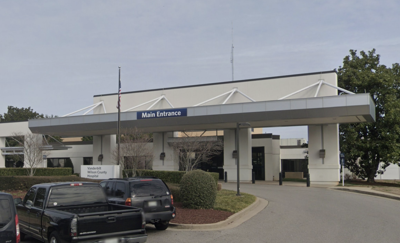Vanderbilt Wilson County Hospital is on a list of hospitals in Tennessee which researchers from North Carolina State University at Chapel Hill said may be at risk of closing due to concerns of Medicaid cuts.
More than $1 trillion in Medicaid cuts, which is attributed to the “One Big Beautiful Bill Act” which was passed by Congress and was signed into law by President Donald Trump, are cited by ĐÔĘÓ˝çAPPC at Chapel Hill as the reason nine Tennessee hospitals are at risk of closing.
The list published by ĐÔĘÓ˝çAPPC is:
- Unicoi County Hospital in Erwin (Unicoi County)
- Wayne Medical Center in Waynesboro (Wayne County)
- Baptist Memorial Hospital in Huntingdon (Carroll County)
- West Tennessee Healthcare Volunteer Hospital in Martin (Weakley County)
- Dyersburg Regional Medical Center in Dyersburg (Dyer County)
- Vanderbilt Wilson County Hospital in Lebanon (Wilson County
- Ascension Saint Thomas Dekalb in Smithville (DeKalb County)
- Ascension Saint Thomas Highlands in Sparta (White County)
- Saint Thomas Stones River Hospital in Woodbury (Rutherford County)
ĐÔĘÓ˝çAPPC calls these rural hospitals, but some officials say Vanderbilt Wilson County Hospital is not a “rural hospital” and that hospitals are receiving stabilization funds.
“There’s got to be some mistake, because if anything, I would say Wilson County is primed for a second hospital,” State Rep. Clark Boyd said. “[Vanderbilt Wilson] is not a rural hospital.”
Last month, TriStar Summit announced plans to build an ER facility in Lebanon.
Boyd said he looked into what ĐÔĘÓ˝çAPPC published, and was told it may be based on old data from when Vanderbilt Wilson County Hospital was still Tennova Healthcare-Lebanon before being purchased by Vanderbilt University Medical Center.
“Before then, it really was losing money,” Boyd said.
He added that since Vanderbilt acquired the location from Tennova, the hospital was able to expand.
Vanderbilt has also responded to concerns that any of its hospitals closing.
A spokesperson said, “We remain committed to the communities and patients we serve. We have no plans to close any of our regional hospitals and are continually seeking ways to expand programs and services at these facilities to better meet the needs of these communities.”
“I think what they’re calling Medicaid cuts are really three categories,” Boyd continued. “One of them is a work requirement for non-disabled Medicaid recipients, but because Tennessee is not an expansion state, we really don’t have that.”
An expansion state is a state that expanded its Medicaid program under the Affordable Care Act (ACA) to individuals who previously did not qualify. Currently, Tennessee’s Medicaid program (TennCare) is available to legally-present state residents who are parents or caretakers of children, adult children with disabilities, elderly, blind or otherwise disabled, often with a cap related to poverty level.
“The revalidation of qualification — that, in some circles, would be perceived as a cut,” Boyd added. “It’s really not. If you’re eligible, you just have to demonstrate that you’re eligible. I don’t think that would really cut the number of people enrolled. I just don’t think that the changes to Medicaid would impact us that much.”
The last category Boyd mentioned was what he said was the hospital assessment fee, which is used to help bring financial resources to provide TennCare benefits to enrollees. Private hospitals pay a 3.52% fee on their annual coverage assessment base which is matched by federal dollars.
“TennCare has been a leader in innovation, providing health care to approximately 1.5 million Tennesseans with an impressive 96% satisfaction rate,” Tennessee Senator Marsha Blackburn said. “During the budget reconciliation process, I remained committed to protecting Medicaid funding and Tennesseans’ access to care statewide, while ensuring we eliminated waste, fraud, and abuse so the program can continue to serve those who need it most.”
“The One Big Beautiful Bill Act reinforces the original intent of Medicaid to service the most vulnerable by introducing new accountability measures. In Medicaid expansion states, able-bodied adults younger than 65 are required to report monthly whether they meet the 80-hour per month community engagement requirement, with exceptions for parents with children 13 years of age or younger,” Blackburn added. "As a non-expansion state, the legislation exempted Tennessee from the reduction in provider taxes, dollars which help to fund a significant portion of the TennCare program. The bill also created a $50 billion rural hospital stabilization fund to provide states with flexible funds designed to support facilities in danger of closure.”
The cuts to Medicaid across the nation are not immediate and will take place over the next 10 years. Funding changes are not scheduled to take effect until 2028, but work requirements in non-expansion states are set to begin by the end of 2026.












(0) comments
Welcome to the discussion.
Log In
Keep it Clean. Please avoid obscene, vulgar, lewd, racist or sexually-oriented language.
PLEASE TURN OFF YOUR CAPS LOCK.
Don't Threaten. Threats of harming another person will not be tolerated.
Be Truthful. Don't knowingly lie about anyone or anything.
Be Nice. No racism, sexism or any sort of -ism that is degrading to another person.
Be Proactive. Use the 'Report' link on each comment to let us know of abusive posts.
Share with Us. We'd love to hear eyewitness accounts, the history behind an article.